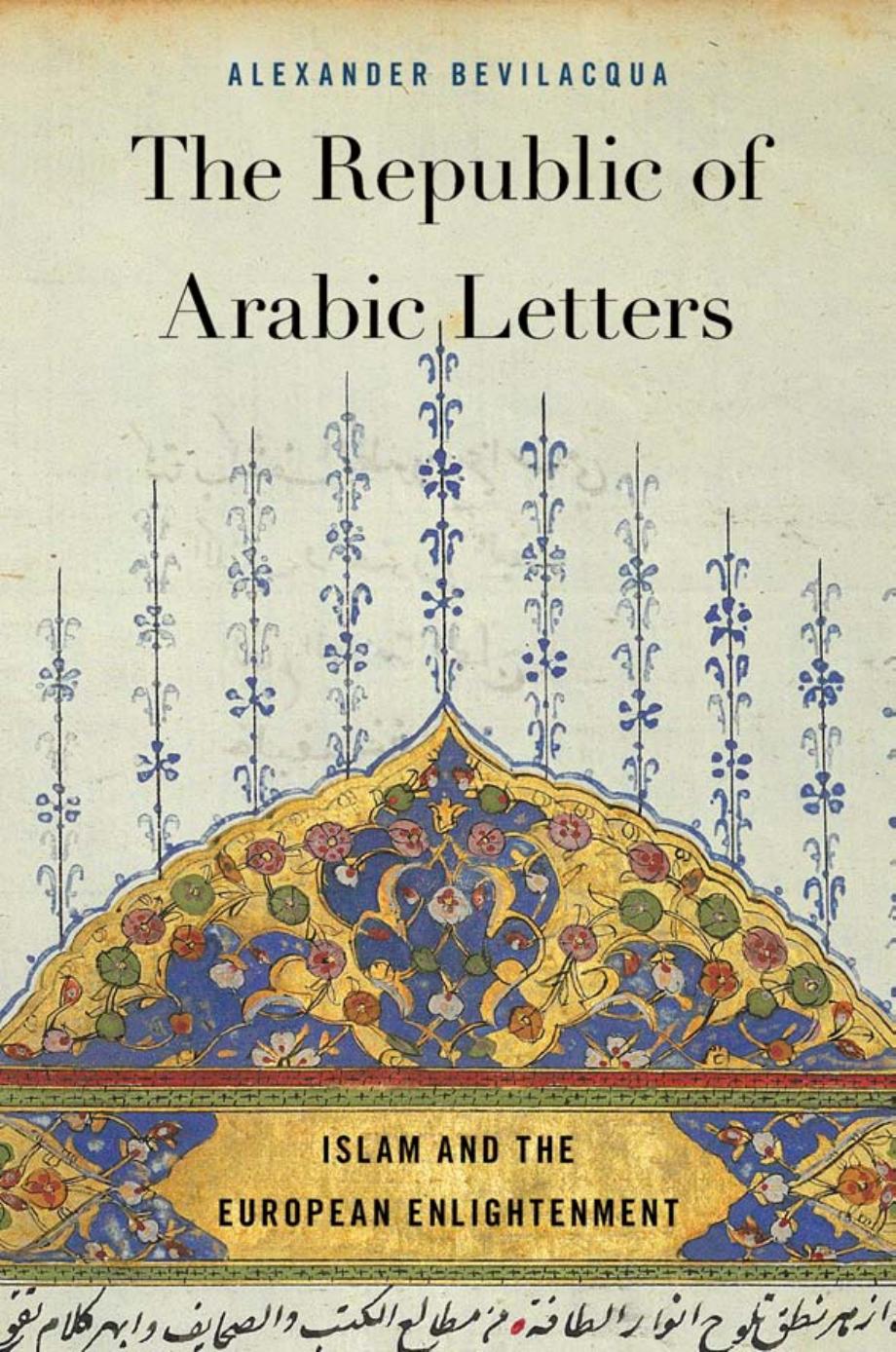The Republic of Arabic Letters: Islam and the European Enlightenment by Alexander Bevilacqua

Author:Alexander Bevilacqua
Language: eng
Format: epub, pdf
Tags: History, Europe, General, Modern, 18th Century, Religion, Islam, Koran & Sacred Writings
Publisher: Harvard University Press
Published: 2018-01-15T01:09:06.452000+00:00
Voltaire
Voltaire’s Essai sur les mœurs et l’esprit des nations (literally, Essay on the manners and the spirit of nations, 1756) examines the emergence of modern Europe, starting from the days of Charlemagne, when “the chaos of our Europe begins to take a shape after the fall of the Roman Empire,” to the age of King Louis XIV of France, an era that Voltaire (1694–1778, born François-Marie Arouet) believed was on par in greatness with Greece under Pericles and Alexander, Rome under Julius Caesar and Augustus, and Italy in the Renaissance.70 The Essai narrates the gradual rise of a modern, secular European civilization, with mœurs (manners) defined as the degree of cultural refinement a nation has achieved.
Voltaire painted the progress of the human spirit in broad strokes, leaving to others the ostensibly tedious details of past dynasties and battles. Though he worked in conversation with primary sources and erudite scholarship, he saw his role as that of selecting facts and events relevant to creating a wide-ranging historical vision.71 He initially conceived the book for his companion Madame du Châtelet (1706–1749), a brilliant thinker who held a very low opinion of modern history, while she admired antiquity. Its opening pages, addressed to an imaginary reader, begin: “You wish finally to overcome the disgust that modern history since the decline of the Roman empire provokes in you.”72
Voltaire used non-Western history to show that European civilization did not possess the priority and normativity usually attributed to it. The Essai opens in ninth-century Asia, a place more culturally flourishing than ninth-century Europe, and discusses the antiquity, and especially the religions, of China and India, societies more ancient than Europe whose religions were unconnected to Christianity. From there, it moves to a discussion of Persia, Arabia, and the rise of Islam. Voltaire urged his contemporaries to pay attention to Asia: “Why would we neglect to know the esprit of these nations, to which the merchants of our Europe have traveled since they were able to find a way there?”73
The Essai was Voltaire’s response to Bishop Bossuet’s Discours sur l’histoire universelle, which was written for the dauphin and published in 1681. Purporting to be a universal history from the creation to the ninth century, the Discours shed no light on the emergence of Islam or Muslim history.74 The Essai begins at the time of Charlemagne, where the Discours left off, and greatly enlarges its scope. Voltaire took Bossuet to task for his Eurocentric approach: “This eloquent writer, in a passing mention of the Arabs, who founded such a powerful empire and such a flourishing religion, merely speaks of them as of a flood of barbarians.”75
Voltaire, who is today most often remembered as a symbol of secularism for his lifelong fight against the French Catholic Church and its abuses, was not, however, an atheist, but a deist.76 Much of his interest in non-Christian religions derived from a wish to unsettle Christianity and demonstrate that its revelation was not unique or even special. He touched on Islam in a
Download
The Republic of Arabic Letters: Islam and the European Enlightenment by Alexander Bevilacqua.pdf
This site does not store any files on its server. We only index and link to content provided by other sites. Please contact the content providers to delete copyright contents if any and email us, we'll remove relevant links or contents immediately.
| Hadith | History |
| Law | Mecca |
| Muhammed | Quran |
| Rituals & Practice | Shi'ism |
| Sufism | Sunnism |
| Theology | Women in Islam |
The History of Jihad: From Muhammad to ISIS by Spencer Robert(2622)
Nine Parts of Desire by Geraldine Brooks(2361)
The Turkish Psychedelic Explosion by Daniel Spicer(2355)
The First Muslim The Story of Muhammad by Lesley Hazleton(2268)
The Essential Rumi by Coleman Barks(2043)
1453 by Roger Crowley(2023)
The Last Mughal by William Dalrymple(1855)
Trickster Travels: A Sixteenth-Century Muslim Between Worlds by Davis Natalie Zemon(1847)
Muhammad: His Life Based on the Earliest Sources by Martin Lings(1644)
God by Aslan Reza(1639)
by Christianity & Islam(1629)
A Concise History of Sunnis and Shi'is by John McHugo(1567)
No God But God by Reza Aslan(1541)
Magic and Divination in Early Islam by Emilie Savage-Smith;(1533)
The Flight of the Intellectuals by Berman Paul(1502)
Nothing to Envy by Barbara Demick(1445)
Art of Betrayal by Gordon Corera(1429)
What the Qur'an Meant by Garry Wills(1391)
Getting Jesus Right: How Muslims Get Jesus and Islam Wrong by James A Beverley & Craig A Evans(1340)
